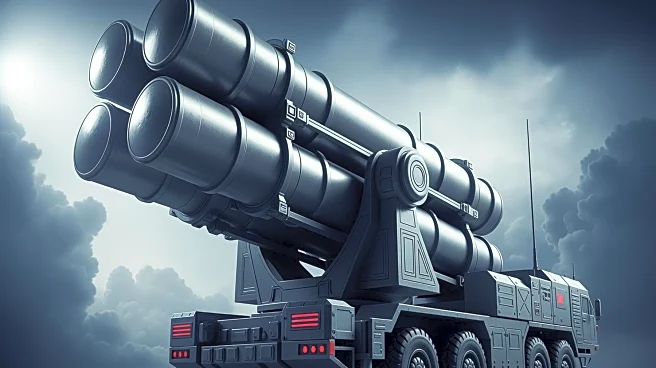What's Happening?
Iran's Foreign Minister Abbas Araghchi has announced that Iran's missile capabilities have significantly improved since the June conflict, sending a warning to the U.S. about its growing military power.
Araghchi emphasized that Iran will not negotiate its missile program or regional activities in future talks, focusing solely on nuclear issues. Despite U.N. sanctions, Iran is reportedly accelerating its missile program rebuild, raising concerns among U.S. officials. The conflict saw Iran firing missiles into Israel and attacking U.S. military bases, with both sides claiming victories.
Why It's Important?
Iran's enhanced missile capabilities pose a strategic challenge to U.S. interests in the Middle East, potentially destabilizing the region. The refusal to negotiate on missile and regional issues complicates diplomatic efforts to address Iran's nuclear program. The situation underscores the importance of international cooperation in managing regional security threats. Iran's alliances with Russia and China further complicate geopolitical dynamics, impacting U.S. foreign policy and regional stability.
What's Next?
The prospect of U.S.-Iran cooperation remains slim, with both sides entrenched in their positions. Upcoming meetings, such as the IAEA board of governors meeting, will focus on Iran's nuclear program, potentially influencing future negotiations. The international community may continue to pressure Iran to comply with U.N. sanctions and engage in dialogue. The evolving missile program will be closely monitored, with implications for regional security and U.S. foreign policy.
Beyond the Headlines
Iran's missile program raises ethical and legal questions regarding arms proliferation and regional security. The involvement of China and Russia in supporting Iran highlights shifting alliances and the impact on global power dynamics. The situation also reflects broader challenges in achieving nuclear non-proliferation and maintaining peace in volatile regions.










